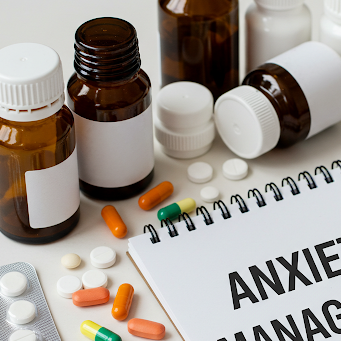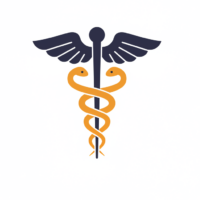
Anxiety Medication: Finding the Right Treatment for Calm and Clarity
Anxiety can feel overwhelming, making even simple tasks seem daunting. Whether you experience generalized anxiety, panic attacks, social anxiety, or other anxiety disorders, the right medication can make a profound difference in managing symptoms and regaining control.
This guide covers the most effective anxiety medications, how they work, potential side effects, and tips for using them safely.

Understanding Anxiety Disorders
Anxiety disorders affect millions worldwide and can manifest in different ways:
Anxiety Disorders
- Generalized Anxiety Disorder (GAD): Excessive worry about daily life.
- Social Anxiety Disorder: Fear of social interactions.
- Panic Disorder: Sudden panic attacks with physical symptoms.
- Obsessive-Compulsive Disorder (OCD): Repetitive thoughts and behaviors.
- Post-Traumatic Stress Disorder (PTSD): Anxiety after trauma.
Types of Anxiety Medications
| Medication Type | Common Medications | Uses | Side Effects |
| SSRIs (Most common, increases serotonin levels) | Fluoxetine (Prozac), Sertraline (Zoloft), Escitalopram (Lexapro) | GAD, Panic Disorder, Social Anxiety, PTSD | Nausea, headache, insomnia, sexual dysfunction |
| SNRIs (Boosts serotonin & norepinephrine) | Venlafaxine (Effexor XR), Duloxetine (Cymbalta) | GAD, Panic Disorder, Chronic Pain | Nausea, fatigue, dry mouth |
| Benzodiazepines (Fast-acting, short-term use) | Alprazolam (Xanax), Clonazepam (Klonopin) | Panic Disorder, Acute Anxiety | Drowsiness, dependence risk |
| Buspirone (Non-sedating, long-term use) | Buspar | GAD | Dizziness, nausea |
| Beta–Blockers (Controls physical symptoms) | Propranolol (Inderal), Atenolol (Tenormin) | Social Anxiety, Performance Anxiety | Fatigue, dizziness |
| TCAs (Older antidepressants, less common) | Amitriptyline (Elavil), Imipramine (Tofranil) | Panic Disorder, GAD | Weight gain, dry mouth |
| MAOIs (Rarely used, dietary restrictions required) | Phenelzine (Nardil), Tranylcypromine (Parnate) | Atypical Anxiety & Depression | Insomnia, weight gain, hypertension risk |




Safety Tips for Anxiety Medication
- Follow prescriptions – Never change doses without consulting a doctor.
- Monitor side effects – Report severe reactions immediately.
- Avoid sudden discontinuation – Gradual tapering is necessary.
- Combine with therapy – Cognitive Behavioral Therapy (CBT) enhances effectiveness.
- Lifestyle changes – Exercise, relaxation, and a healthy diet support treatment.
When to Seek Help
The right anxiety medication can restore calm and clarity, but it’s most effective when combined with therapy and healthy habits. Always work with a doctor to find the best treatment for your needs. If medication isn’t helping or anxiety worsens, consult your healthcare provider. Adjustments or alternative treatments may be needed.

